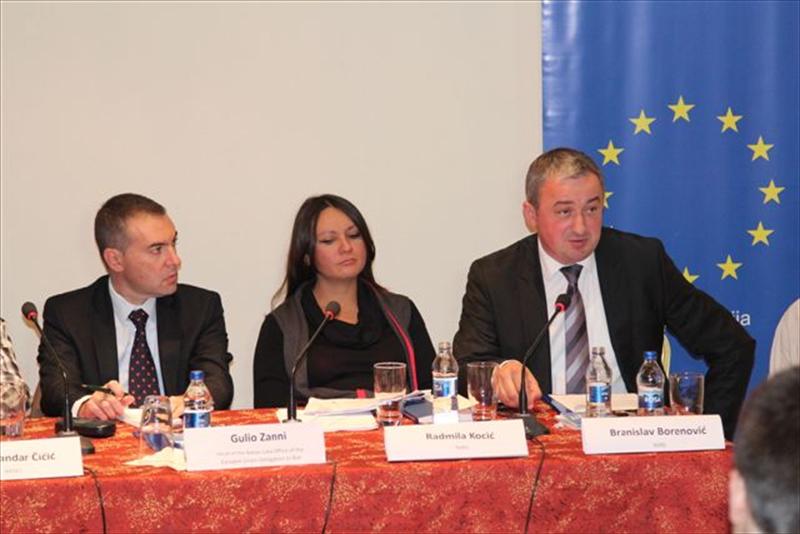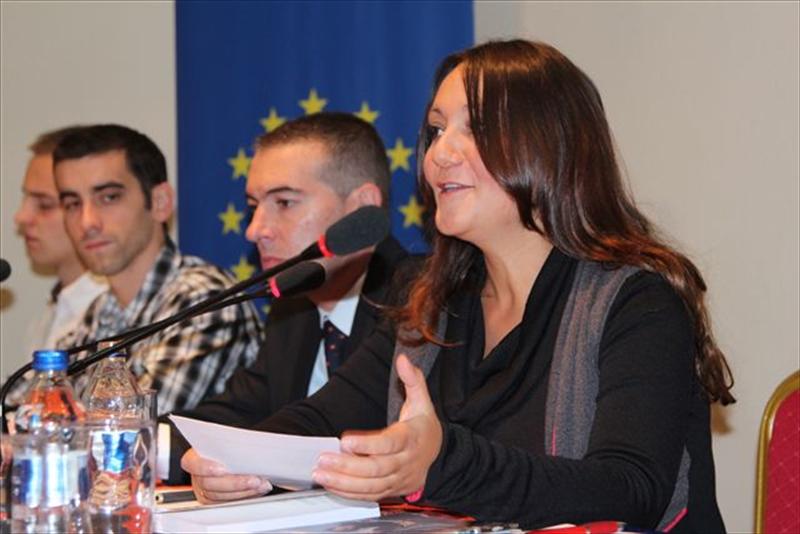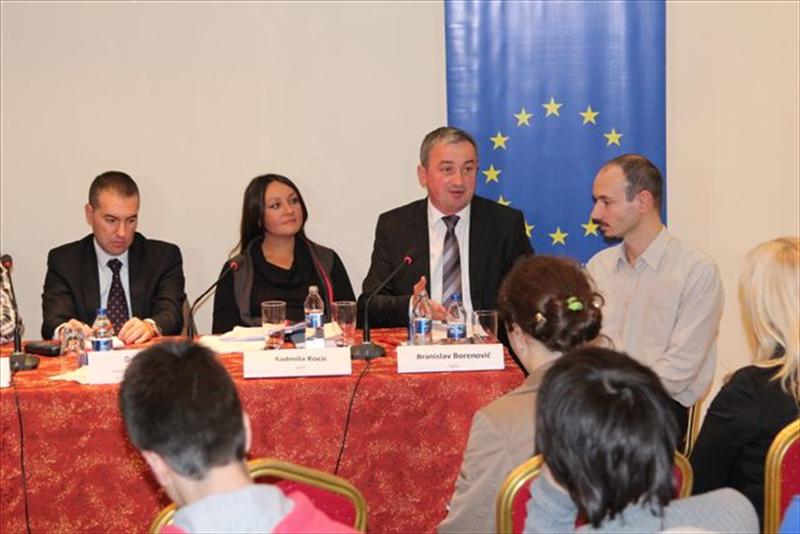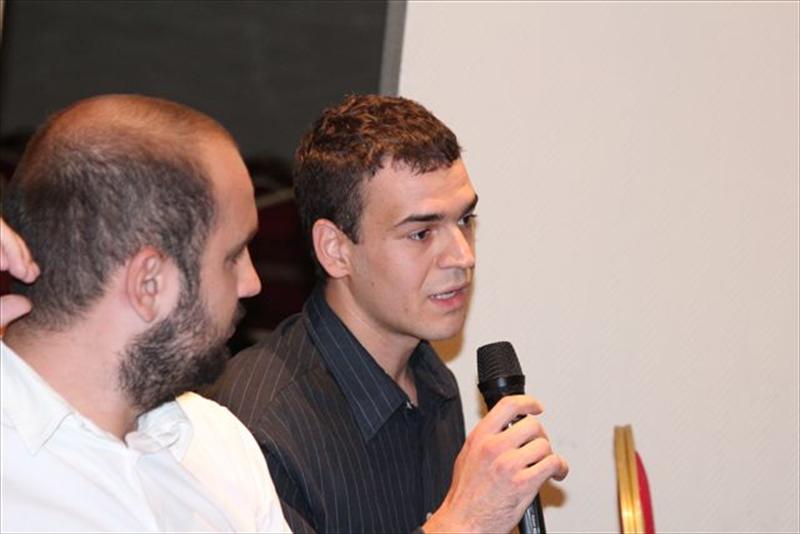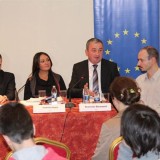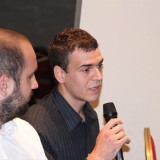Parliamentarians and young BiH citizens discussed European and BiH perspectives on education and employment at a lively debate in Banja Luka on 30 September.
Young people in Bosnia and Herzegovina face difficult choices when it comes to education and employment – and as the country moves along the path of European integration, these choices should include new opportunities. Typically, students have to weigh up the advantages and disadvantages of studying at home or abroad, while many jobseekers vote with their feet and conclude that they will have better opportunities if they leave the country.
The debate in Banja Luka with 35 students from the Law, Political Science, Philosophy, Engineering, and Medical faculties gathered within AIESEC (the International Association of Students in Economic and Commercial Sciences), together with representatives from the RS National Assembly, Radmila Kocić and Branislav Borenović, was concrete and lively, focusing on the opportunities that young people in this country have, and the advantages and disadvantages of studying or seeking work at home or in one of the countries of the European Union.
The debate was opened by Mr. Gulio Zanni, Head of the Banja Luka Office of the European Union Delegation to BiH. Noting that debates of this sort offer an excellent opportunity for students and representatives of institutions to discuss education and employment, Mr Zanni stressed that EU integration means that the responsible institutions and agencies have to raise standards in the education and employment sectors as well. “Compared to other countries, Bosnia and Herzegovina has the comparative advantage of having a high proportion of young people in the overall population and that represents an enormous pool of human capital on which it should be possible to start building a thriving economy,” Mr Zanni said. “That’s why it’s so important that BiH students start taking advantage of programmes such as Erasmus Mundus – and that’s why it’s a pity that, currently in Bosnia and Herzegovina, programmes like this are being underused.
All of the students’ speakers alluded to the very clear shortcomings of the domestic education system and labour market. Schools and universities offer very limited choice, and the unemployment rate makes the search for work, even among those who have completed higher education, exceptionally difficult. This difficulty is compounded by the fact that there is a fundamental disconnect between the education and training system on the one hand and the demands of commerce and industry on the other. Political gridlock, administrative corruption and a near moribund economy mean that these basic challenges to students and job-seekers are unlikely to be resolved in the short term. But all agreed that they can be resolved, and they must be resolved. Ultimately, the solution cannot be for young, qualified and enthusiastic citizens simply to leave the country.
Both parliamentarians Kocić and Borenović encouraged young people to seriously consider staying in Bosnia and Herzegovina and taking a dynamic, proactive and constructive part in decisions about the future. Specifically, it was agreed that meetings of this sort, together with visits to parliaments and governments, offer an avenue for young people to engage in the political process.

